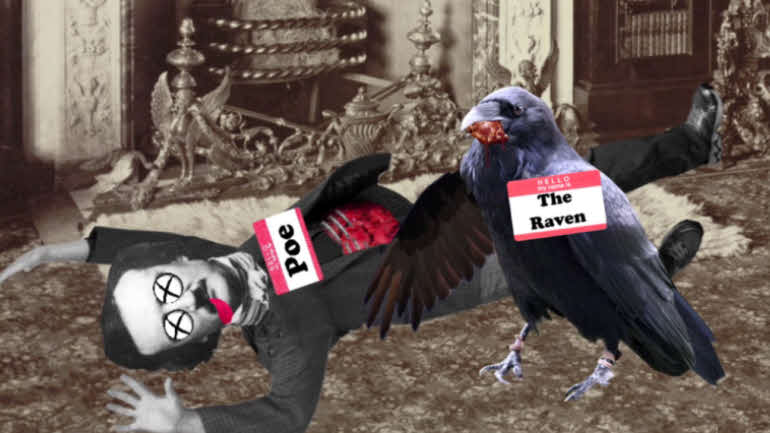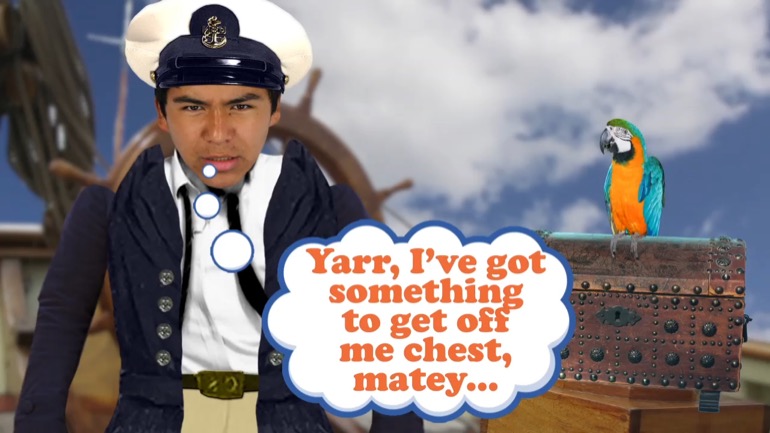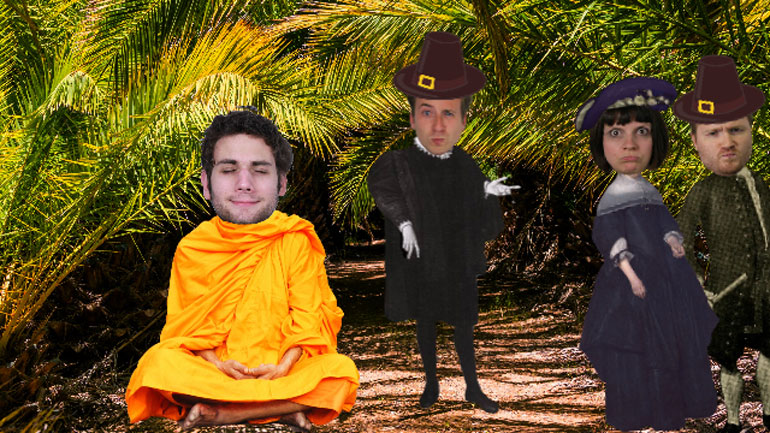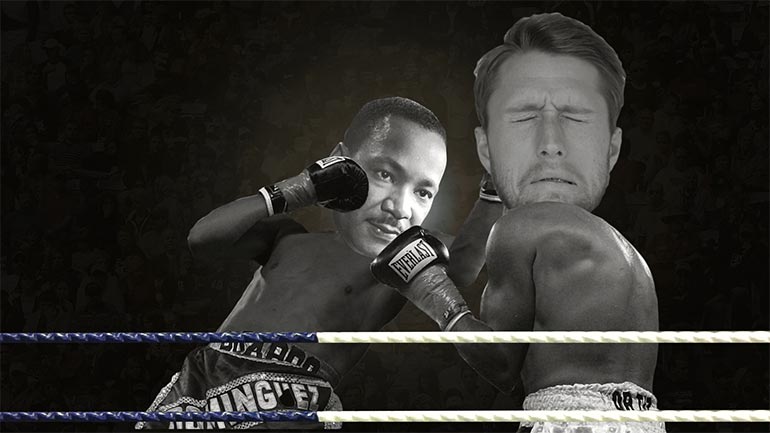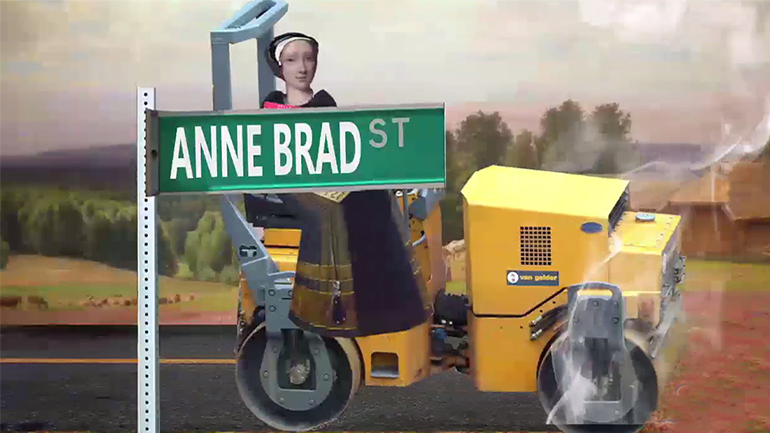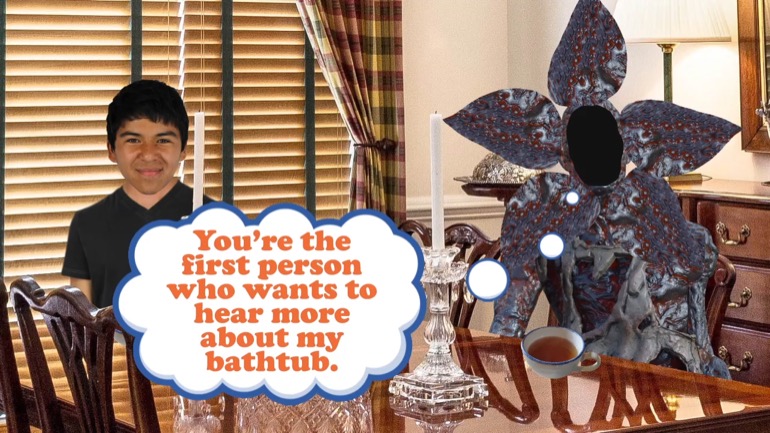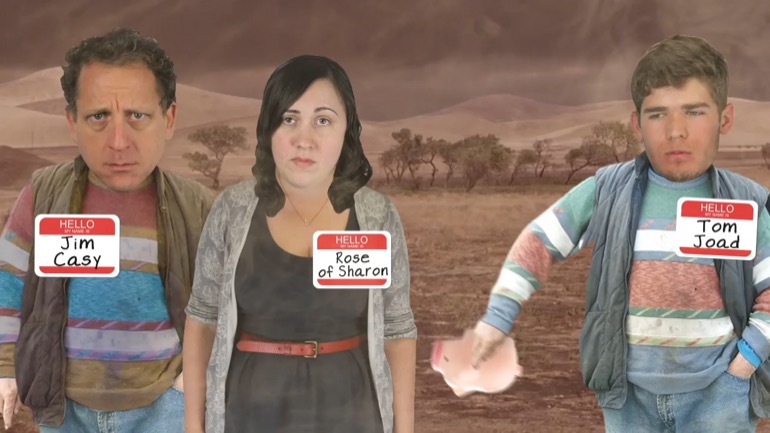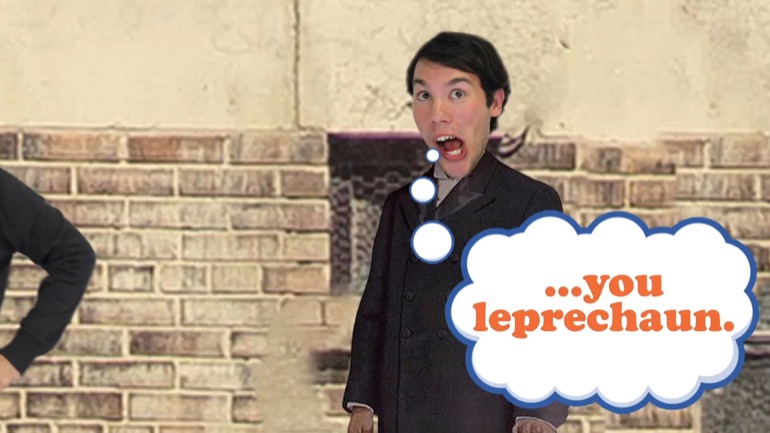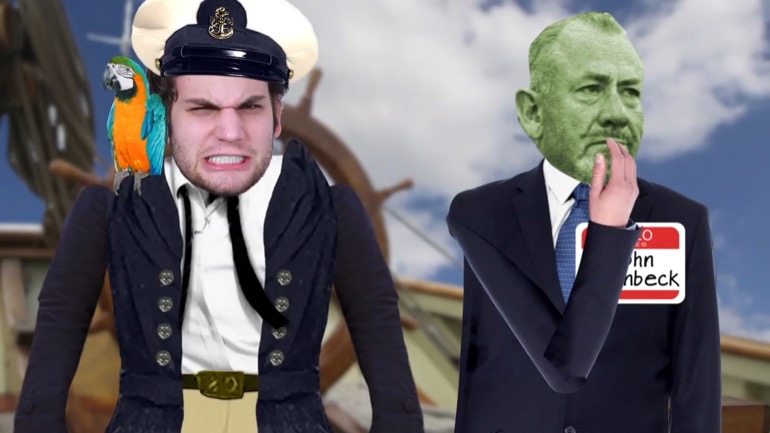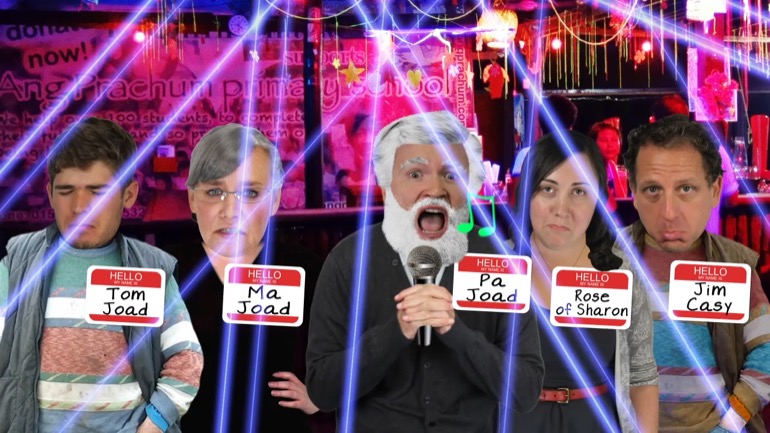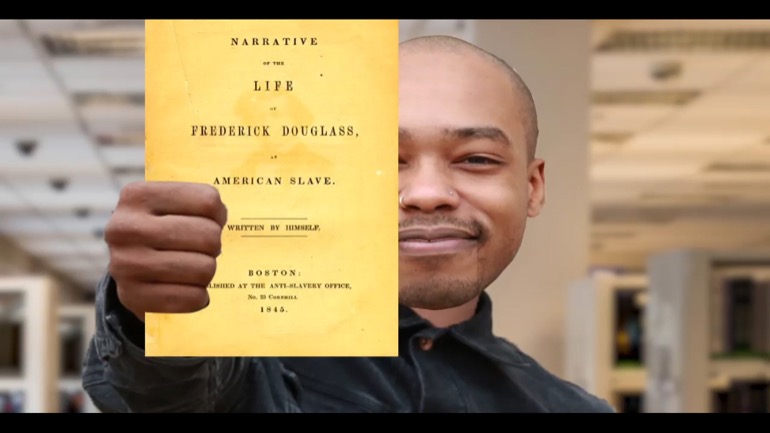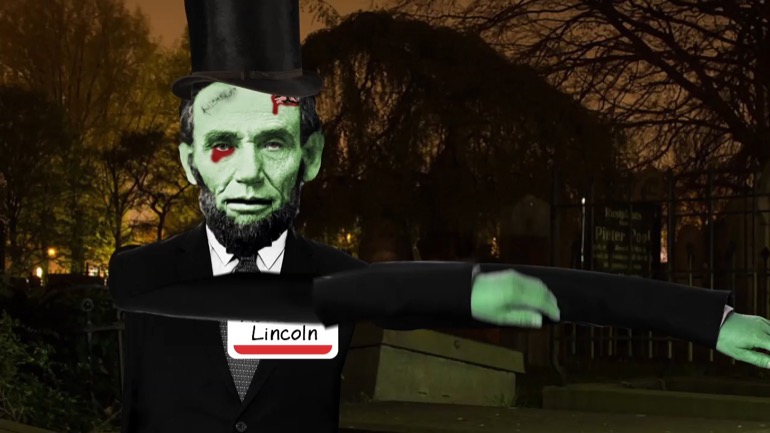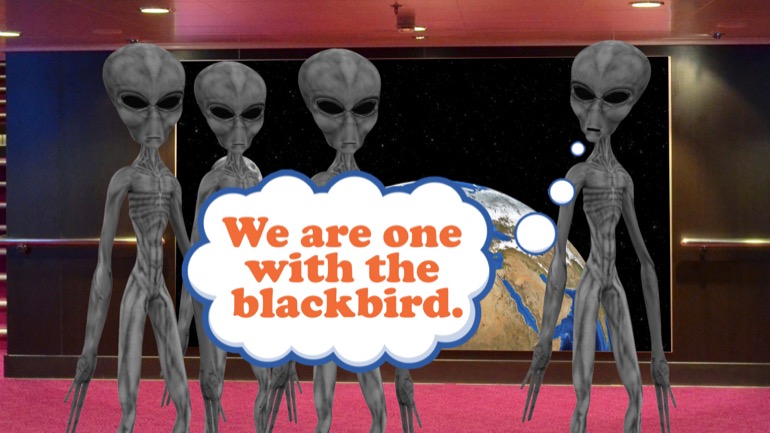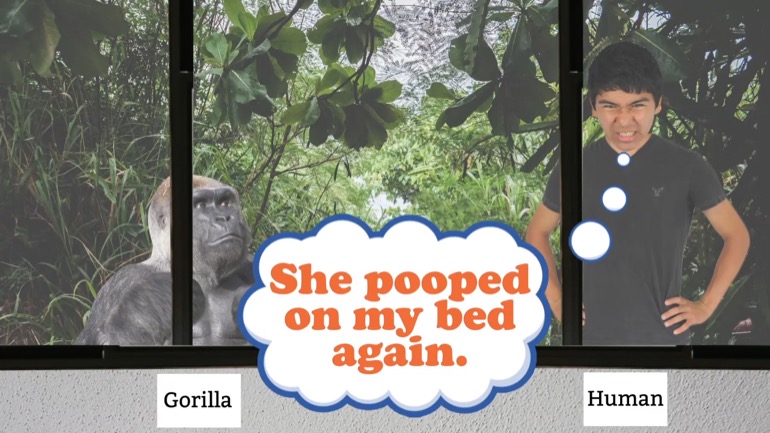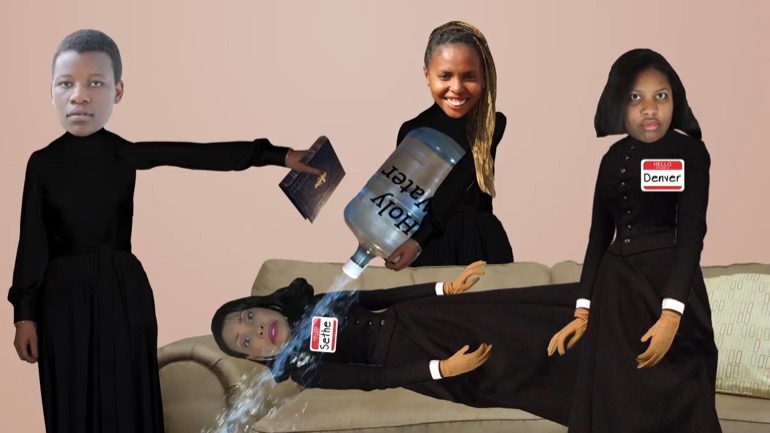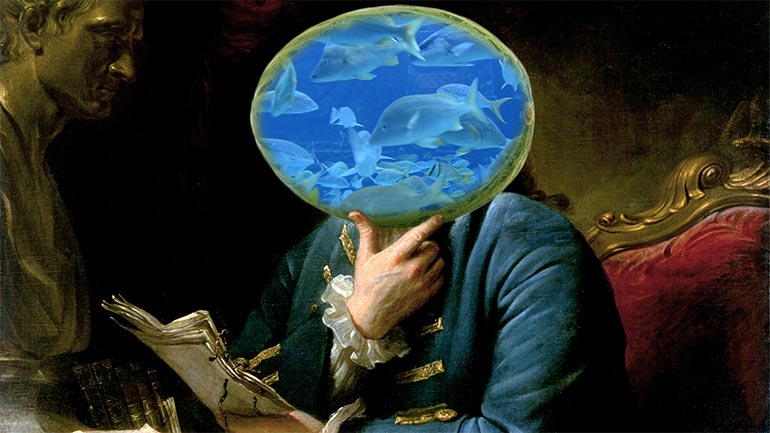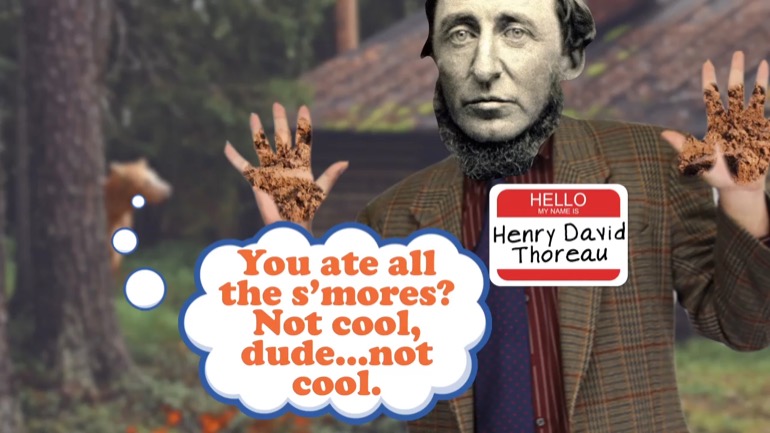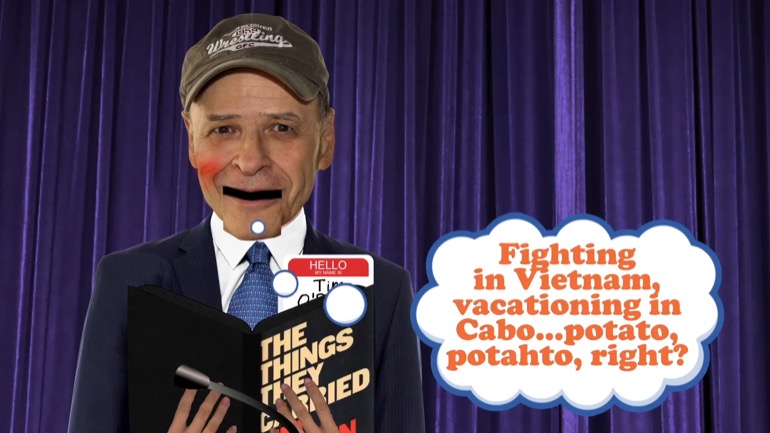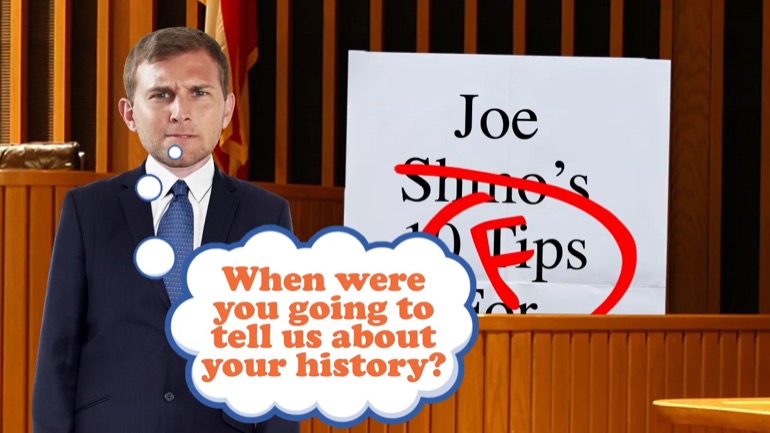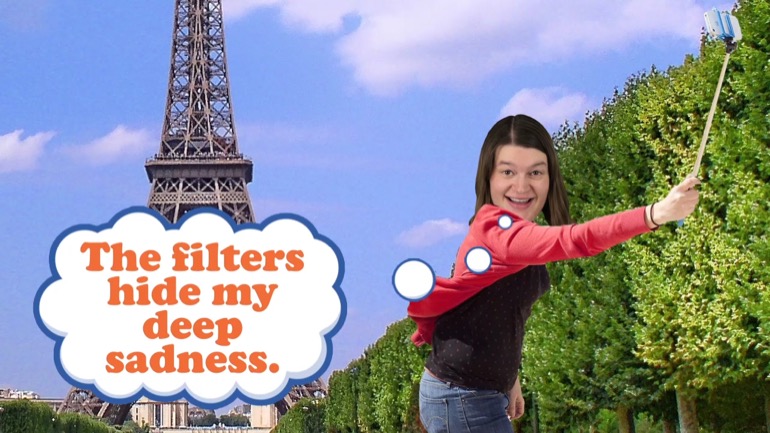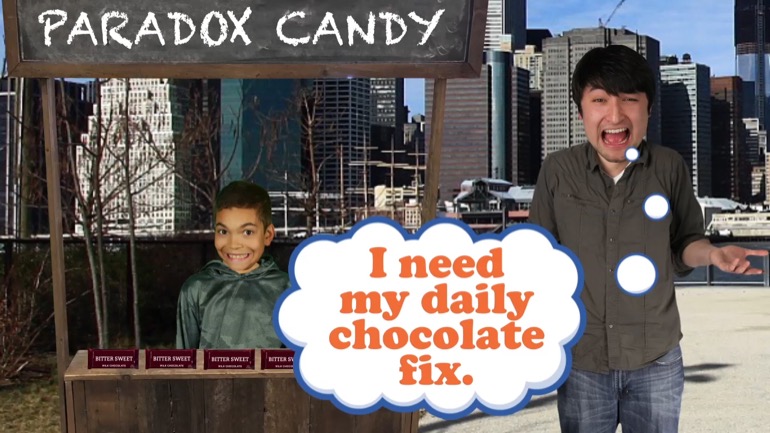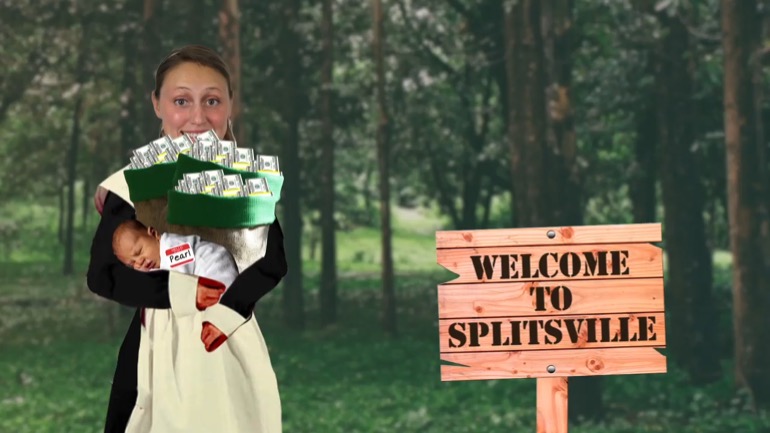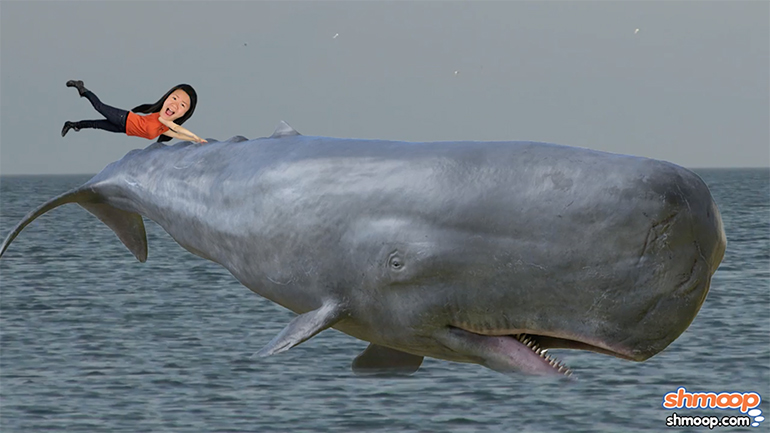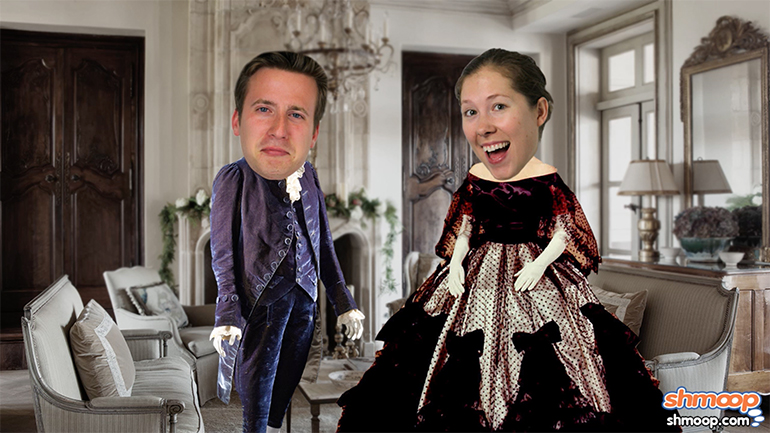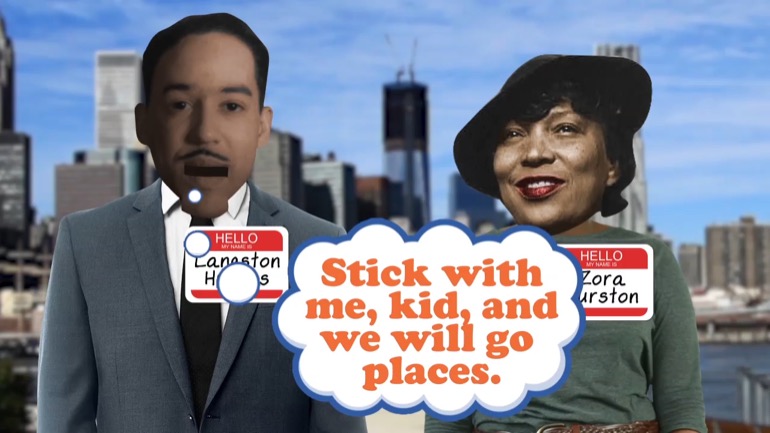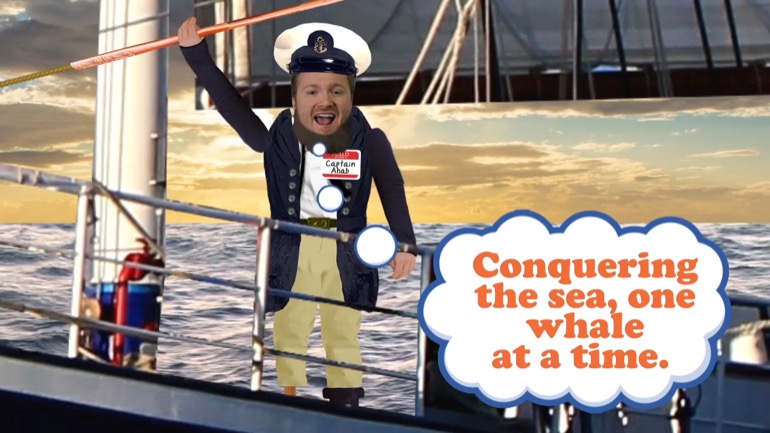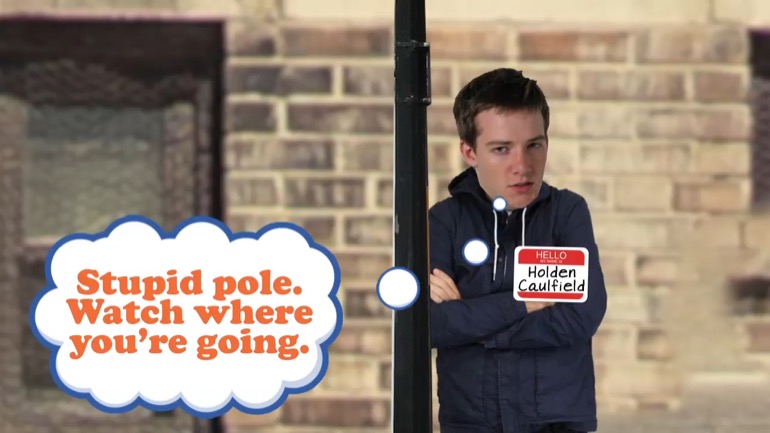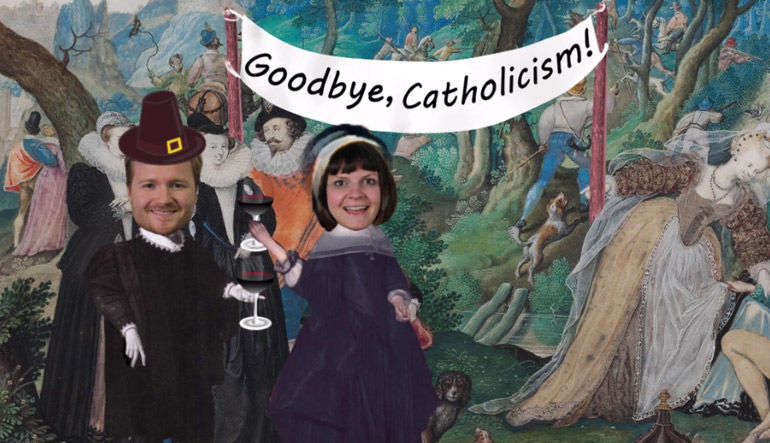ShmoopTube
Where Monty Python meets your 10th grade teacher.
Search Thousands of Shmoop Videos
Courses Videos 906 videos
How are risk and reward related? Take more risk, expect more reward. A lottery ticket might be worth a billion dollars, but if the odds are one in...
What's a dividend? At will, the board of directors can pay a dividend on common stock. Usually, that payout is some percentage less than 100 of ear...
What is bankruptcy? Deadbeats who can't pay their bills declare bankruptcy. Either they borrowed too much money, or the business fell apart. They t...
American Literature: Modernism 3112 Views
Share It!
Transcript
- 00:02
modernism - Ezra Pound
- 00:13
Robert Frost - Elizabeth Bishop all right Harvard problem well
- 00:23
[A talking blue phone box] time is a pretty weird concept the past is full of cave people kings and
- 00:29
queens and people hanging out in Coliseums in the future is going to be
- 00:33
all about robot spaceships and flying cars but present-day reality is always
Full Transcript
- 00:37
different depending on what time you're living in modern means different things [Busy traffic jam]
- 00:41
to different people like in the 1980s modern was having a cell phone like any
- 00:46
cell phone and in 2010 modern means staying up to speed on the latest apps
- 00:52
that track your calories or how many steps there are between your room and [People gathering at an ice cream van]
- 00:56
the nearest ice-cream vendor around the end of the 19th and beginning of the
- 00:59
20th centuries an entire literary and artistic movement was dubbed modernism
- 01:05
some quintessential examples now Ulysses by James Joyce and TS Eliot's epic poem
- 01:11
The Waste Land both deal a lot with personal identity while this period is [kid dressed as an astronaut]
- 01:16
often said to have started around 1890 and ended roughly around 1945 and
- 01:21
remember another little world-changing event that ended around that time yeah
- 01:25
World War two the big one which also means that World War one took place
- 01:29
during the modernist period so two world wars happen during this time I think [Machine guns firing]
- 01:34
that might have affected the way authors were writing and artists were creating
- 01:38
hmm yeah the writers and artists of the modernist era were quite interested in
- 01:42
exploring the idea of self and coming to grips with what this might mean well in
- 01:47
doing this self-examination modernist writers made conscious efforts to break [Skull x-ray picture in front of girls face]
- 01:52
away from previous literary and social conventions and deliberately chose to
- 01:56
write in new and at the time unconventional ways modernist literature [business man using a typewriter]
- 02:01
is marked by fragmented sometimes tricky to follow narratives the stylistic
- 02:06
choice echoes the disjointed state of society in the wake of the big wars
- 02:11
additionally the writing moved away from traditions in societal norms like gender [little girl playing the piano]
- 02:15
roles and practices such as religion modernist writers really paid attention
- 02:19
to advancements in psychology philosophy and in politics they took these new
- 02:27
theories and advancements to heart as grand new truths and used this info
- 02:32
to shape what they were writing loss and self-consciousness were major themes
- 02:37
in modernist literature these writers used allusions multiple perspectives and
- 02:42
nonlinear time sequencing to create a type of literature that hadn't been seen [exploding head]
- 02:48
ever before modernist Lit differs from postmodern
- 02:51
lit the era of writing that followed it and has often talked about as a reaction
- 02:56
to modernism postmodern authors threw it back to the styles and convention used [woman throwing her drink in a mans face]
- 03:02
in the days of literature before modernism while modernist whole-heartedly
- 03:06
believed in the theoretical information coming from the sciences post modernist
- 03:11
said this stuff might or might not be true and we don't really care so who [geeky guy wearing glasses and a scarf]
- 03:17
were these modernist writers well the godfather of the movement was Ezra Pound
- 03:22
Pound is notorious for saying make it new which became like a battle cry among
- 03:27
modernist writers he was responsible for creating a poetry movement called
- 03:31
imagism which was all about using very detailed and specific images you know
- 03:36
kind of the bread and butter of modern poetry yeah Pound did that he was also [buttering bread]
- 03:40
really helpful in promoting the work of his peers Pound
- 03:44
aided in launching the careers of amazing writers Robert Frost who we'll [old writer wearing reading spectacles]
- 03:48
learn about in a few minutes William Carlos Williams this guy and
- 03:53
Ernest Hemingway so clearly he was pretty awesome poet in his own right or
- 03:57
at least people respected what he had to say about the art of writing Pound studied
- 04:01
and drew from ancient Asian literary traditions and came up with his own [Paper of asian writing]
- 04:05
translations of classical Chinese and Japanese pieces of writing he was into
- 04:10
the music like flow of ancient writings and sought to mimic that rhythm in his
- 04:15
[lots of people dancing] own work with a modernist twist of course some of pounds poems are crazy
- 04:20
long and since we don't have time to read those epic contributions to the
- 04:23
world of poetry we'll go with couple shorter ones while this first
- 04:26
[Poem written on a piece of paper] poem is called in a station of the Metro believe it or not this is the whole poem
- 04:31
in a station of the Metro the apparition of these faces in the crowd
- 04:35
petals on a wet black bough and that's it no really that's the whole poems not
- 04:40
kidding well the beauty of this baby comes in its simplicity [laughing baby in a basket]
- 04:43
remember how pound came up with something called imagism how strikingly
- 04:48
simple but awesome are the images in the poem we just read and only 14 little
- 04:53
words pound is able to paint a gorgeous picture in the readers head well look [Pound painting a picture inside a head]
- 04:58
closely at the words he chose apparition another word for ghost
- 05:02
so the apparition of faces is like an unclear picture no one face stands out
- 05:06
from the rest then we get to petals on a wet black bow well because he makes a
- 05:11
point to say that the bough or tree limp is black the reader can assume that the [pink and white petals on a tree]
- 05:16
petals are a light color white or maybe pale pink you know kind of like human
- 05:21
skin so the black bow becomes the background of the metro station and the
- 05:25
petals are light colored faces that all flow together until they commingle into
- 05:29
one central image the point of this poem imagism [stamp of imagism]
- 05:32
describing an otherwise commonplace scene in a beautifully poetic way
- 05:36
alright let's take a look at another of pounds main works the river merchants
- 05:40
wife a letter that's quite a bit longer than Metro so you need to pause the
- 05:46
video to read it go for it one day [mumbles]
- 05:54
[mumbling]
- 05:59
[mumbling]
- 06:04
all right in a nutshell this poem is about a wife of a merchant who misses [a woman sailing on a boat]
- 06:09
her husband and writes him a little note reminiscing over how they met and
- 06:12
what their relationship has been like so far perhaps the most striking symbol or
- 06:16
image that stands in for something else that runs throughout the poem is time [a clock with time going by quickly]
- 06:21
the narrator calls back memories that she shared with her husband when they were
- 06:25
two small people when she stopped scowling and says that she desired my
- 06:30
dust to be mingled with yours and when her husband dragged his feet when he had
- 06:36
to leave her to go to work time is represented through these memories since [woman dreaming of past memories]
- 06:40
the narrator is recalling specific things that happened to the couple when
- 06:44
they were younger she gives the reader a brief timeline of the couple's
- 06:47
relationship pound uses imagery in the use of memories to tell a story
- 06:51
this poem is actually Pounds attempt at recreating what he determined was a
- 06:55
[painting of a chinese woman] letter from a woman to her husband in eighth century China Pound didn't attend
- 07:00
to literally translate the writing but used his own poetic license to make it
- 07:04
his own so there's a lot more we could say about pound in his incredible poetry [a talking blue phone box]
- 07:07
let's turn now to one of the poets Pound helped really make a name in a poetry
- 07:11
game Robert Frost well Frost is best love for
- 07:15
his nature poetry and has since become an even bigger name in the world of [JFK, Jackie Kennedy and Robert Frost sitting at a ceremony]
- 07:19
poetry than pound was a farmer turned poet Frost wasn't interested in
- 07:24
inventing new and unusual ways to write poetry instead he drew from and wrote
- 07:29
about what he knew because of his personal experience as a farmer in New [A Robert Frost book on a shelf]
- 07:32
England and well people just gobbled it up Frost won a mind-boggling four
- 07:37
Pulitzer Prizes for four of them in his lifetime it was so good that many lines
- 07:42
from his poems have been quoted used as song lyrics and emblazoned on placards
- 07:46
that people actually hang in their kitchen
- 07:48
possibly Frost's most famous work though it's up for debate is the road not
- 07:54
taken' here we go and I two roads [mumbling]
- 07:59
[mumbling]
- 08:04
[more mumbling]
- 08:06
[mumbling so the road not
- 08:10
taken' is probably one of the best-known poems in the history of American poetry [people sitting on a bus reading a poem]
- 08:15
it might even be the top dog in the pile of poems everyone knows and loves
- 08:18
as I said Frost was really into nature and it shows up in one way or another in
- 08:23
pretty much every one of his poems well the road not taken' is no exception to
- 08:27
this rule from line one of the poem we're hit with nature imagery giving us the
- 08:31
setting of a poem two roads diverged in a yellow wood well not only do we know [a man walking in the woods]
- 08:37
that the speakers in the woods somewhere we know that the trees are yellow which
- 08:41
likely means it's autumn in a symbolic way this could mean that speaker is
- 08:45
about to make a big life decision in the autumn season of his life as they're you [someone thinking about making a decision]
- 08:50
know approaching old age well a few lines later we are told that one of the
- 08:53
roads bent in the undergrowth which shows us that the woods are pretty darn
- 08:58
thick or is it that the speaker's big life decision is a tough one and will be [pizza or a salad]
- 09:02
hard to navigate in the second stanza the speaker is weighing the options
- 09:06
between the two paths one is more worn used and the speaker thinks that well
- 09:12
the less used path would be a better try it could be insinuating the speaker's [hand choosing the salad over the pizza]
- 09:16
contemplating making the decision that most people don't or wouldn't make given
- 09:20
the same set of circumstances in this way frost is setting the speaker apart
- 09:24
from the norm and without directly saying so is making the speaker [an empty plate of food]
- 09:28
something of a unique character in the final stanza the speaker repeats the
- 09:32
initial lines from the poem and left the reader in on their decision two roads
- 09:36
diverged in a wood and I took the one less traveled by and that has made all
- 09:41
the difference while as readers we aren't given the information about [highlighted section of the poem]
- 09:44
whether or not the road traveled was the most fun or the easiest choice frost
- 09:48
writes that has made all the difference well choosing the one less traveled by
- 09:53
was significant in changing the speaker's life whether for better or [a man walking in the woods]
- 09:56
worse we don't know but it's certain that this monumental decision held sway
- 10:00
over the remainder of the speaker's days it would be easy to chill with frost so
- 10:05
we did there for the rest of the day but instead
- 10:07
we're going to turn now to the Lady of modernism Elizabeth Bishop
- 10:12
As a youngster Bishop lost her dad and mom to death and mental illness respectively
- 10:16
she had to live with whatever relative would take her in [woman answering the door to another woman]
- 10:18
which caused her to have to you know move around a lot as an adult
- 10:22
Bishop continued traveling and was lucky enough to be able to see a good chunk of [train travelling past a platform]
- 10:25
the globe in her lifetime born in Massachusetts she spent several years
- 10:29
living in Brazil with her lover Lota de Macedo Soares after Soares killed [A headstone]
- 10:35
herself Bishop moved back to the US and started
- 10:38
working at of course Harvard she won a Pulitzer Prize and a National Book Award
- 10:43
[a newspaper with a womans picture] for her collection of poetry which are often said to be place poems or poetry
- 10:47
that intensely focuses and describes a particular setting well Bishop's poetry
- 10:52
also contains themes derived from her real-life love loss her identity as a
- 10:56
woman a lesbian and an orphan I'll take a couple of minutes now and read filling [filling station poem written on paper]
- 11:02
station [mumbling]
- 11:08
[mumbling]
- 11:12
[still mumbling]
- 11:18
okay first of all don't hate the speaker yeah
- 11:22
[woman standing in a factory yard] they sound kind of snooty at the beginning but give them a chance how the
- 11:26
speaker gives us the imagery of this place is what really sets this poem
- 11:29
apart from the others there are super observant to observer and as a reader
- 11:34
we're left with a really clear picture about really oily gas-station the [a woman reading in an oily gas station]
- 11:38
speaker repeats and repeats and repeats how oil soaked and dirty everything is
- 11:43
from the station itself to the dad and his son to the grease impregnated
- 11:47
wickerwork on the couch even the family dog gets the speaker's dirty observation [dog napping on a chair]
- 11:52
oh right about when we're sick and tired of hearing the speaker go on and on about
- 11:56
all the nasty mess they see suddenly there's a breakthrough a human element
- 12:00
reaches through all of that dirt and grime to allow the speaker to understand [a sewing machine]
- 12:04
somebody embroidered the doily somebody waters the plant you know what had
- 12:10
started out as a snide condemnation of the way people kept up the appearance of
- 12:14
their business has shifted gears the speaker is able to connect an actual [dad and son getting oil at the station]
- 12:18
person with all of the simple things they've been describing which seems to
- 12:22
change the entire tone of the poem the concluding line somebody loves us all
- 12:27
seems to indicate that while the speaker might be appalled by the dirt and oil
- 12:31
covered everything they're observing it's
- 12:33
filling station this is still someone's place of business it's their home and
- 12:37
[a talking blue phone box] being rude with judgment doesn't really serve anyone well modernism might have
- 12:42
been a fleeting period in literary history but it made a huge impact on
- 12:45
contemporary writers many of the greatest writers came from this era and
- 12:49
poured out their fragmented nature love and image filled little hearts all over the page without modernism we couldn't have post-modernism the incredibly [bin being emptied]
- 12:57
awesome literary movement we're all living in right now
Related Videos
“Happy Hunger Games!” Or not. Katniss’s Hunger Games experiences left a not-so-happy effect on her. This video will prompt you to ponder if...
Who's really the crazy one in One Flew Over the Cuckoo's Nest? Shmoop amongst yourselves.
Sure, Edgar Allan Poe was dark and moody and filled with teenage angst, but what else does he have in common with the Twilight series?
¿Por que es el 'Gran' Gatsby tan gran? ¿Porque de su nombre peculiar? ¿Porque de el misterio que le rodea? Se ha discutido esta pregunta por muc...
Would would the world be like without books? Ray Bradbury tackles that question—and many more— in Fahrenheit 451. Go ahead; read it on your Kin...



